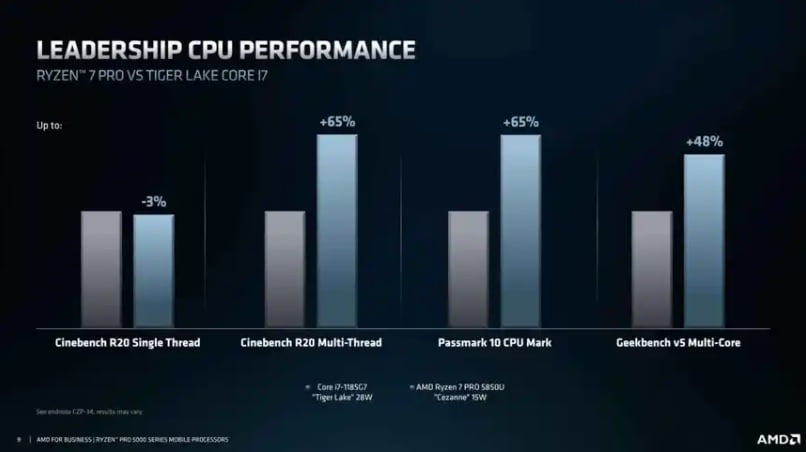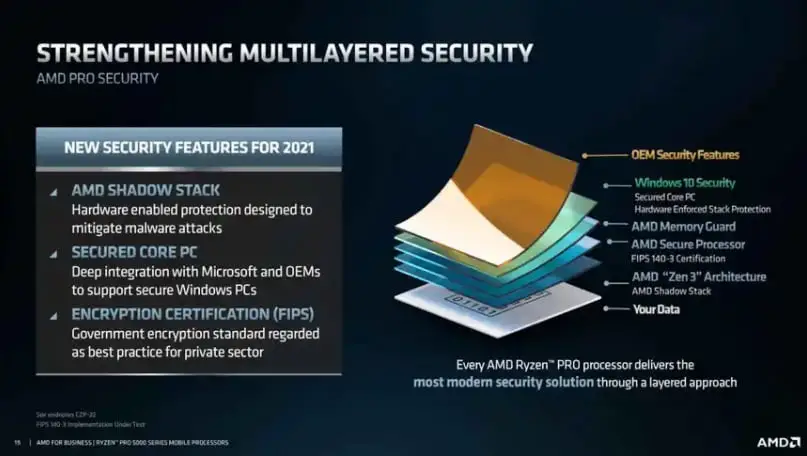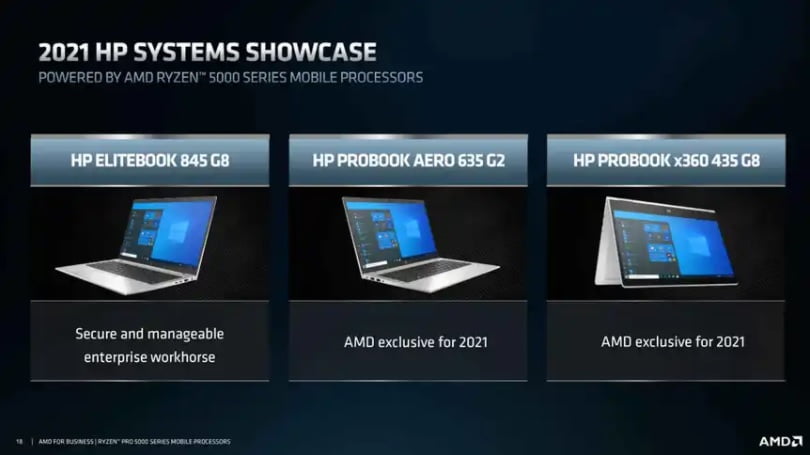AMD has introduced the new range of Ryzen Pro 5000 mobile chips with Zen 3 architecture, which will be used in notebooks and workstations for businesses and professionals. Those processors are committed to multitasking and balancing power with energy consumption.
Ryzen 5000 chips have established themselves as a great alternative, especially if we need a new laptop, both for work and gaming.
AMD’s new Ryzen Pro 5000 Mobile processor looks great on professional notebooks
Today, AMD unveiled its new range of processors aimed at professional users, the Ryzen Pro 5000 Mobile. As the name suggests, these are better versions of the Ryzen 5000s that are sold for the average consumer but aimed at computers that will end up in offices, either at home or at work.
This is a particularly important launch, considering the huge growth that the commercial notebook sector is experiencing.
The new Ryzen Pro for notebooks seeks to respond to this demand, based on the Zen 3 architecture that has delivered such good results. So the story is much the same, these processors offer up to eight cores and larger level 3 cache memory, in addition to excellent multitasking performance.

In terms of performance, the Ryzen Pro 5000s follow the footsteps of the standard versions, especially in multitasking. According to AMD’s own data, the new Ryzen 7 Pro 5850U is 65% superior to the Intel Core i7-1185G7 in the Cinebench multithreading test, as well as 65% superior in Passmark 10.
That Intel model is appearing in many laptops, such as the Asus ZenBook Duo 14. In contrast, AMD’s range includes 8-core, 16-thread processors to achieve that superior multitasking performance.
AMD does not specifically talk about home office, but to demonstrate the potential of these processors it presents a very common use case in recent months: a Zoom call with 49 participants while using Microsoft Office applications. In that case, the Ryzen Pro is 10% faster than Intel, according to AMD.
More surprising is that these data have been measured giving an advantage to the Intel processor, with a TDP of 28W, while the Ryzen Pro remains at 15W. Thanks to that, AMD promises that the battery will last a whole working day.
Ryzen Pro 5000 Mobile is even more secure

But the professionals do not only look for performance, they also want security and stability. For the latter, AMD has implemented new security layers, in addition to those of Windows 10 to protect our data. Technologies such as Shadow Stack are hardware-based malware protection, and AMD has worked with Microsoft and notebook brands to integrate their security directly into the system and the apps used. The new processors are also certified to the best encryption standards.
Unlike a mainstream consumer, a professional is also looking for greater stability in their system, and changes are often unwelcome. AMD promises 18 months of software stability, plus 24 months of processor availability.

As with the regular Ryzen 5000 Mobile, the new Ryzen Pro has also caught the attention of many brands. Some have even switched to AMD exclusively in some of their professional models, such as the HP ProBook Aero 635 G2. Lenovo is also preparing three versions of its popular ThinkBook with the new Ryzen Pro.
Ryzen Pro 5000 Series Mobile specs
| Name | Cores / Threads | Frequency | Architecture | Cache | TDP |
| Ryzen 7 PRO 5850U | 8/16 | 4.4GHz / 1.9GHz | Zen 3 – 7 nm | 20MB | 15W |
| Ryzen 5 PRO 5650U | 6/12 | 4.2GHz / 2.3GHz | Zen 3 – 7 nm | 19MB | 15W |
| Ryzen 3 PRO 5450U | 4/8 | 4.0GHz / 2.6GHz | Zen 3 – 7 nm | 10MB | 15W |




